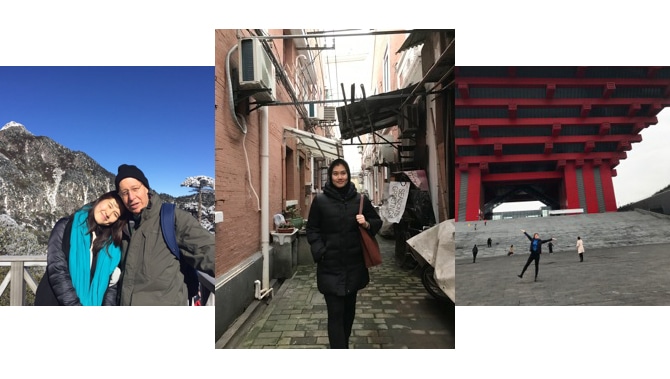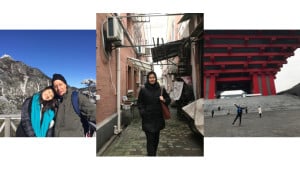We were leaning against the subway doors as the express train rattled down from Grand Central Station to Union Square in Manhattan. We had met at Warby Parker earlier when he asked me to help him pick out a pair of sunglasses.
“Where are you from?” he asked.
This question always throws me off. Feeling self-conscious, I responded: “I moved a lot and grew up mostly in China. My parents live in Shanghai so that feels like home — but I moved to the U.S. to go to college and work in New York now.” It sounded like a confused elevator pitch.
Moving constantly and being biracial makes questions like “where are you from?” tricky. Instead of articulating a country that grounds who I am, I feel displaced. The question exposes the fact that I don’t feel belonged in any country — America, or China.
I became aware of this special breed of “homelessness” when I went to college, when “where are you from?” opened up countless conversations. It wasn’t until I graduated two years ago, that I began to wonder why I felt paralyzed by such a simple question. Was it because where I was from is not a single place? Or, was it because not a single place represents all my significant childhood friendships? Or, was it because my growing up years are marked by constant moving without a permanent home? And, none of the international schools I attended was home to anyone for more than a year?
Growing up, I noticed that nobody was from any one particular country. Instead, we were from everywhere all at once.
As I navigated college, I began to internalize my inability to pinpoint a place on the map for a confused sense of self. Even though I weaved a narrative of all of the places I had lived, I felt insecure. There were times when I felt like fitting myself into a box like “the Tri-State Area,” “Seattle,” or “Boston” would be so much easier. When making small-talk, I felt like my background made the other person uncomfortable. Looking back, I realize I was the only one feeling awkward and confused — not them. At some point, I stopped asking people where they were from. Instead, I would ask: “where did you grow up?” in an effort to give them an opportunity to trace a more fluid path to where they are today.
As I stood across from this stranger on the train, I recognized confusion or interest in his face. At the same time, a familiar sense of discomfort swept over me.
“Wow, but your English is so good. You sound so American!” he exclaimed as we pulled up to my stop. The doors opened, and I stepped off, grateful that I didn’t have to explain.
Reflecting on our exchange over the next few days, I realized that I want to give myself permission to not pinpoint one place. I want to give myself space beyond one country, one culture or one zip code. I want to feel confident that I am in charge of my own narrative even though it is not one simple story. So what if strangers on the subway or at the party can’t relate to my multicultural multinational upbringing? Where did they grow up that makes them interesting? Perhaps there’s a better way to frame our inquiry that’ll illuminate what really matters…how about “Does New York feel like home to you?”



